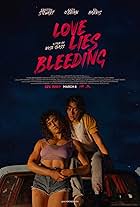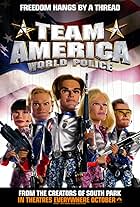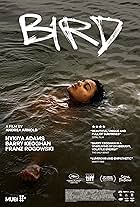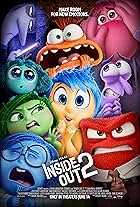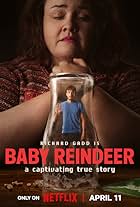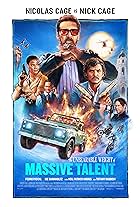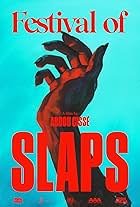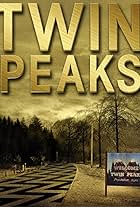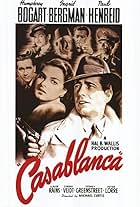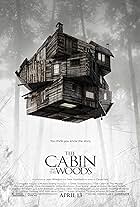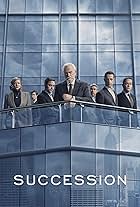carrythe2
Joined Dec 2005
Welcome to the new profile
We're still working on updating some profile features. To see the badges, ratings breakdowns, and polls for this profile, please go to the previous version.
Ratings238
carrythe2's rating
Reviews16
carrythe2's rating
In Anora, Sean Baker continues to explore the darker corners of life, and their inhabitants, that we usually prefer to ignore. But this time, the scale has been blown up. In a wonderful parallel between director and subject matter, the big boost in production values (this is a Universal picture) goes hand-in-hand with the fortunes of his new protagonist. While Mikey, the central character of Baker's prior feature Red Rocket, rode around a decrepit rural neighbourhood on a bicycle, Anora gets to travel on private planes and stay in obscenely opulent penthouse apartments. Even her workplace is spacious and lavish, as strip clubs go. Such an increase in scale and budget comes with higher stakes and bigger risks, but it doesn't seem to trouble Baker. In fact, this is perhaps his most confident film yet.
In a lot of ways, Anora feels like a familiar modern archetype. She's a sex worker who's comfortable with it, and good at it. She knows what she wants and her clients all seem to get the deal. Even when wayward Russian playboy Vanya lands in her club, he seems to get it too. Sure, she'll come back to his place and provide a little extra service, but he's happy to pay. Yeah, she'll come back tomorrow too, but he's got the cash. Yeah, she'll be his girlfriend for a week but she'll haggle the price. But when he suddenly (but inevitably) takes it too far and proposes a Vegas wedding, we can see that she's in deep. What does she see in him? It's sometimes hard to understand. Perhaps simply the promise of a whole different life.
As in all Baker's films, there is unease and tension throughout. His characters are so vulnerable and yet so careless and wilful, you never get to relax. When scary Russian goons enter the picture to force an annulment to the marriage, Anora couldn't be less intimidated. The bulk of the movie is spent in this standoff - a battle of wills - and this act is a black comedy masterpiece. Again and again, tense and sometimes violent moments are punctured by a hilarious reaction, or quip, or cut to later. True, Anora's outbursts of fury, incessant trash talking and relentless screaming can wear on the ear. But always the empathy is with her, her behaviour completely understandable, her performance (from Mikey Madison) unforgettable.
While you might expect what is essentially a story of a doomed marriage to feel leaden, Anora is such a sensory film, gorgeous and vibrant to see and hear, unabashedly horny, full of energy and flashes of unexpected comedy. Rarely did I feel it losing momentum, in spite of its length. Always I was anticipating (and sometimes dreading) what the next scene would bring.
In a lot of ways, Anora feels like a familiar modern archetype. She's a sex worker who's comfortable with it, and good at it. She knows what she wants and her clients all seem to get the deal. Even when wayward Russian playboy Vanya lands in her club, he seems to get it too. Sure, she'll come back to his place and provide a little extra service, but he's happy to pay. Yeah, she'll come back tomorrow too, but he's got the cash. Yeah, she'll be his girlfriend for a week but she'll haggle the price. But when he suddenly (but inevitably) takes it too far and proposes a Vegas wedding, we can see that she's in deep. What does she see in him? It's sometimes hard to understand. Perhaps simply the promise of a whole different life.
As in all Baker's films, there is unease and tension throughout. His characters are so vulnerable and yet so careless and wilful, you never get to relax. When scary Russian goons enter the picture to force an annulment to the marriage, Anora couldn't be less intimidated. The bulk of the movie is spent in this standoff - a battle of wills - and this act is a black comedy masterpiece. Again and again, tense and sometimes violent moments are punctured by a hilarious reaction, or quip, or cut to later. True, Anora's outbursts of fury, incessant trash talking and relentless screaming can wear on the ear. But always the empathy is with her, her behaviour completely understandable, her performance (from Mikey Madison) unforgettable.
While you might expect what is essentially a story of a doomed marriage to feel leaden, Anora is such a sensory film, gorgeous and vibrant to see and hear, unabashedly horny, full of energy and flashes of unexpected comedy. Rarely did I feel it losing momentum, in spite of its length. Always I was anticipating (and sometimes dreading) what the next scene would bring.
Bird might seem a big step for Andrea Arnold, as it creeps tentatively into the realm of magical realism from her usual gritty, firmly naturalistic territory. But ironically, much of what takes up the runtime is well-trodden ground for her.
There are enjoyable elements, particularly the standout debut from lead Nykiya Adams, whose confidence is thrilling to watch. It looks gorgeous and vibrant on 16mm, assuming you can handle the absolutely wild handheld camera moves. The soundtrack, of mostly modern British rock and punk, is refreshingly different. There is some good humour and often a light tone - the kids do get to be kids sometimes, in between the inevitable trials of being forced to grow up too fast.
But Bird feels rather aimless for most of its runtime. Many scenes and plotlines don't amount to much on their own, leading to a sense that they must be building up to something explosive that I felt didn't ultimately arrive. It lacks imagination in its characters and plot points. Its setting is strangely fantastical and painfully real at the same time, in a way that confuses the tone. Apparently, it is authentic to the director's experience (set firmly in her childhood neighbourhood in Kent) and this adds to the sense that Arnold is telling a quite personal story that may have far more meaning to her than to the general audience.
There are enjoyable elements, particularly the standout debut from lead Nykiya Adams, whose confidence is thrilling to watch. It looks gorgeous and vibrant on 16mm, assuming you can handle the absolutely wild handheld camera moves. The soundtrack, of mostly modern British rock and punk, is refreshingly different. There is some good humour and often a light tone - the kids do get to be kids sometimes, in between the inevitable trials of being forced to grow up too fast.
But Bird feels rather aimless for most of its runtime. Many scenes and plotlines don't amount to much on their own, leading to a sense that they must be building up to something explosive that I felt didn't ultimately arrive. It lacks imagination in its characters and plot points. Its setting is strangely fantastical and painfully real at the same time, in a way that confuses the tone. Apparently, it is authentic to the director's experience (set firmly in her childhood neighbourhood in Kent) and this adds to the sense that Arnold is telling a quite personal story that may have far more meaning to her than to the general audience.
Beyond Utopia is not a journey into the "hermit kingdom" (as other documentaries have attempted over the decades) but a journey out, for those lucky enough to get the opportunity. As Pastor Kim - the film's de facto hero - says, the hard part is not crossing the North Korea/China border, but navigating to safety from China, all the way to South Korea via Thailand. A fraught and treacherous journey indeed, one that is becoming more difficult all the time.
One of the most extraordinary elements of this film is that we, the audience, are privileged to accompany a family of defectors (they were actually banished but I won't go into that) all the way through this exhausting endurance test, and hopefully to safety. Said family is certainly not one you would wish to put through such hardship, consisting as it does of two girls around 6-8 years old, their parents and their grandma of 80 years. An unlikely group of survivors - but these are North Koreans, a people whose hardiness and determination are showcased with extraordinary vividness throughout this film.
The mere act of capturing unauthorised footage in the country is highly dangerous, and yet there is plenty to see here (including some distressing footage of public executions and secret beatings). But the focus is always on the people, their stories, their feelings, their worldview. The filmmakers intentionally make the things about NK we always see on the news (Kim Jong Un, the nukes, the palace intrigue) only background to the realities of everyday life.
But the most extraordinary element of all is Pastor Kim himself, a tirelessly heroic champion who coordinates the journey of the family via the many anonymous brokers who lead, drive and accommodate them on their long journey south. Remarkably, he personally escorts them through much of the journey despite a number of personal injuries and medical complaints, just as he has with hundreds of others before (and hopefully hundreds more in the future).
This is an incredibly emotional journey that is impossible not to feel on the deepest level. A more powerful and intimate documentary about this strange and terrifying country and its people is hard to imagine. By shining such a bright light on the struggles of some of the world's most oppressed citizens, this is a hugely important film that will inspire sympathy across the world, and hopefully even some positive change for North Koreans.
One of the most extraordinary elements of this film is that we, the audience, are privileged to accompany a family of defectors (they were actually banished but I won't go into that) all the way through this exhausting endurance test, and hopefully to safety. Said family is certainly not one you would wish to put through such hardship, consisting as it does of two girls around 6-8 years old, their parents and their grandma of 80 years. An unlikely group of survivors - but these are North Koreans, a people whose hardiness and determination are showcased with extraordinary vividness throughout this film.
The mere act of capturing unauthorised footage in the country is highly dangerous, and yet there is plenty to see here (including some distressing footage of public executions and secret beatings). But the focus is always on the people, their stories, their feelings, their worldview. The filmmakers intentionally make the things about NK we always see on the news (Kim Jong Un, the nukes, the palace intrigue) only background to the realities of everyday life.
But the most extraordinary element of all is Pastor Kim himself, a tirelessly heroic champion who coordinates the journey of the family via the many anonymous brokers who lead, drive and accommodate them on their long journey south. Remarkably, he personally escorts them through much of the journey despite a number of personal injuries and medical complaints, just as he has with hundreds of others before (and hopefully hundreds more in the future).
This is an incredibly emotional journey that is impossible not to feel on the deepest level. A more powerful and intimate documentary about this strange and terrifying country and its people is hard to imagine. By shining such a bright light on the struggles of some of the world's most oppressed citizens, this is a hugely important film that will inspire sympathy across the world, and hopefully even some positive change for North Koreans.

